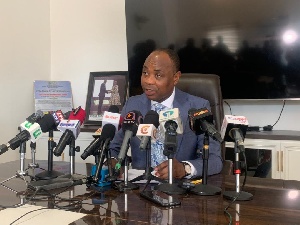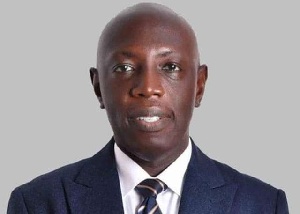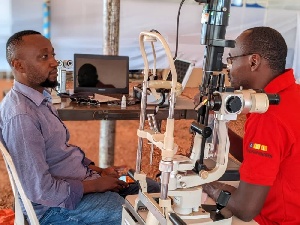- Home - News
- Elections 2024
- News Archive
- Crime & Punishment
- Politics
- Regional
- Editorial
- Health
- Ghanaians Abroad
- Tabloid
- Africa
- Religion
- Photo Archives
- Press Release
General News of Wednesday, 21 May 2025
Source: www.ghanawebbers.com
Children repatriation: Gov’t must follow appropriate protocols - Child Rights International
Bright Appiah, the Executive Director of Child Rights International, urged the government to follow proper protocols for street children. Many of these children are foreign nationals.
He emphasized that this is part of the State's social protection obligations. It should not be ignored during repatriation efforts.
At a news conference in Accra, Mr. Appiah expressed concerns about the Ghana Immigration Service's methods. They recently evacuated beggars from hotspots like Kaneshie and Kwame Nkrumah Circle.
He pointed out that many individuals entered Ghana through northern borders and Aflao in Volta Region. They quickly joined informal networks that support street begging.
“They find places to stay and beg the next day,” he said. “Buses take them to traffic lights to beg. At day's end, they return to their organizers.”
Mr. Appiah stated that whether children are here by choice or coercion, the State must provide care and accommodation. This aligns with national and international child protection laws.
“This isn’t the first repatriation attempt,” he noted. Similar efforts occurred in 2022, but focus should shift to the children involved.
He highlighted that nearly 60 percent of those rescued are children. He referenced the United Nations Convention on the Rights of the Child and Ghana’s Children’s Act for humane treatment during operations.
Mr. Appiah questioned if the Ghana Immigration Service can handle child protection duties effectively. He suggested institutions like the Department of Social Welfare should lead these efforts.
He called for collecting biodata and conducting thorough needs assessments for rescued individuals, especially children. This ensures targeted and effective interventions.
“The state must prioritize children's best interests, regardless of nationality,” he said. He also urged bilateral discussions with countries of origin for sustainable solutions.
Finally, Mr. Appiah advised the government to review its approach to avoid future legal challenges from affected individuals or human rights organizations.
Entertainment










